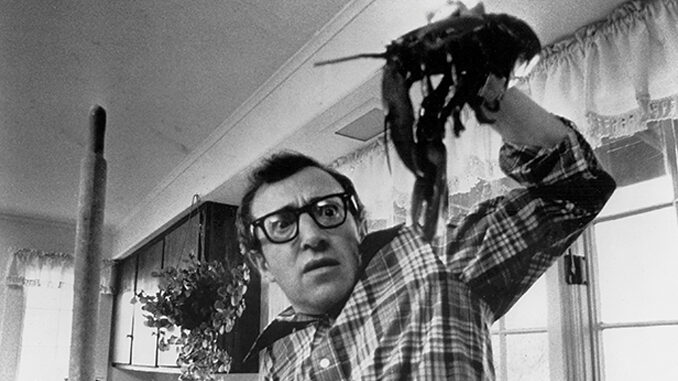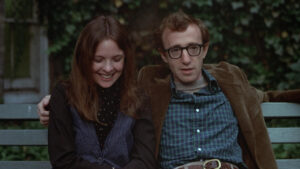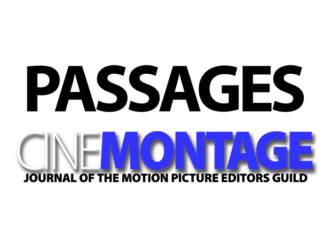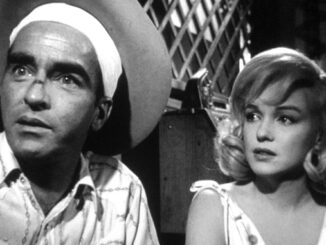
by Alan Brooks
When I was a child, I had childish dreams to be a superhero or a pro athlete. Alas, my only super power was secondary perception, the ability to say, after something had happened, “I knew that would happen.” It did not take me long to learn that the Justice League was not looking for a hero with such an annoying super trait.
The pinnacle of my athletic career was playing varsity basketball for my high school, a Quaker school — so needless to say, we did not have a fight song. The lowlight occurred during the middle of a game, when our head cheerleader told me how much I sucked. It did not take my super power of secondary perception to realize that she was right. To escape from the realities of my disappointments and failures, I turned to the movies in order to find hope, inspiration and a lifelong love of popcorn.
I can say in all honestly that it was a movie, Annie Hall, that changed my life — and for the better. Not only was it a great film that won the Academy Award for Best Picture for 1977, but this romantic comedy dramatically inspired a 17-year-old me; sending the message that if Woody Allen’s character, Alvy Singer, could get Diane Keaton’s character, Annie Hall, there was hope for a dork like me. All I had to be was funny.
I grew up in Manhattan, but I did not begin to appreciate its majestic beauty until Gordon Willis’ cinematography in the film brought it to life for me.
As such, I owe my career and life to Annie Hall. This classic movie put me on the path to film school, the American Film Institute. But more importantly, it taught me that I could use humor to charm the woman who would become my wife of almost 30 years. So a big thanks to Allen and to his co-screenwriter, Marshall Brickman, for not only writing a great movie that features some of my favorite elements — irony, absurdity and poignant pathos — but also for giving me hope, inspiring me, providing me direction and making my life better.
To be successful, I aspired to recreate (without the red hair) the Alvy Singer persona, to have an intellectual and a silly wit, and hopefully to be the charming, well-intentioned, self-deprecating underdog who could rise above his station while still being a romantic at heart. On my first date with the woman who would become my wife, I went into character and bought her a rose — only for me to cut off the flower and give her the stem — telling her that it was all I could afford. When she laughed, I hoped that she was low-maintenance but, more importantly, it showed me her charm and sense of humor, and I felt that I may have found a woman who would tolerate me. Ripping off the Alvy Singer bravado, I also somehow persuaded her to kiss me, in order to get that obstacle out of the way. The rest is history.
Like Alvy, I longed to better understand my relationships and life and to humorously offer a running commentary about my life and those in it. Alvy’s interior monologues provided humor and options, inspiring me to be comically self-deprecating and introspective. Alvy was also a hero for Annie when he killed “a spider as big as a Buick” for her. While still being plagued with fears about love, life and death, ultimately it was Alvy’s actions that taught me that it was okay to tell the woman I loved that I loved her.

Annie Hall, while not a fantasy, was also about movie magic for me. I grew up in Manhattan, but I did not begin to appreciate its majestic beauty until Gordon Willis’ cinematography in the film brought it to life for me. In Annie Hall, the rules of normal filmmaking did not apply. So many of the gags were often a great surprise, like when Alvy broke the fourth wall and brought in Marshall McCluhan to tell an annoying person talking about him that he knew nothing of his work.
But for me, the true magic came at the end of the movie, when Alvy, wanting to get things right with Annie, got his second chance — a literal do-over — when he rewrote their relationship. If only I could use my secondary perception to correct my many mistakes… Then I truly could be a superhero and right the things I got wrong.
The lesson learned was that life without the pursuit of something so challenging, abstract, illogical, painful, necessary and rewarding as love is just unthinkable.





